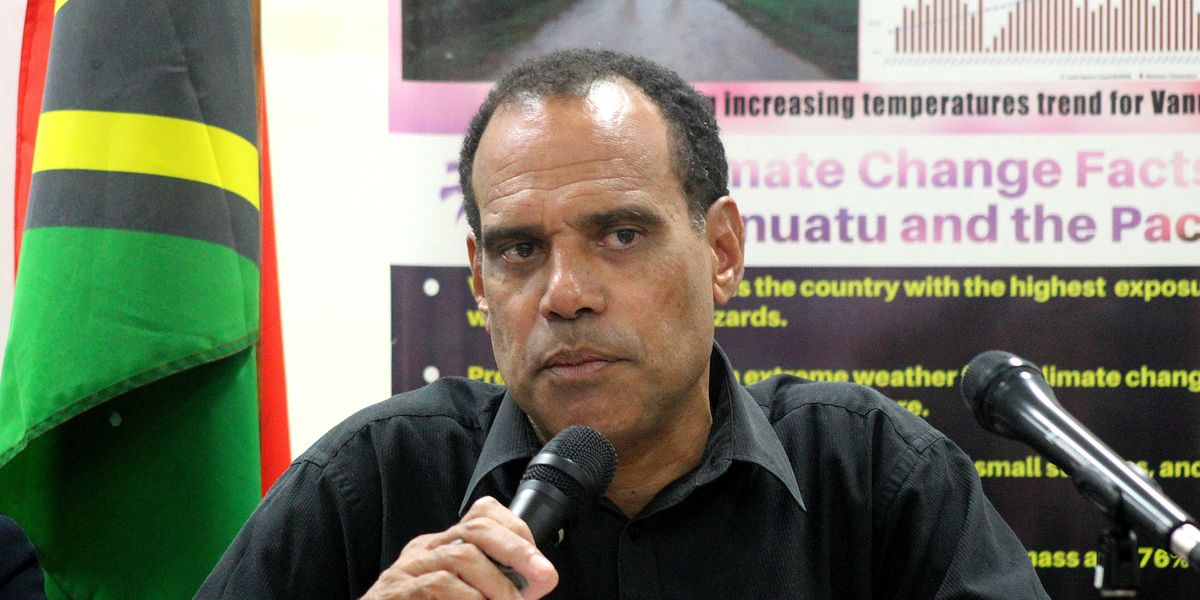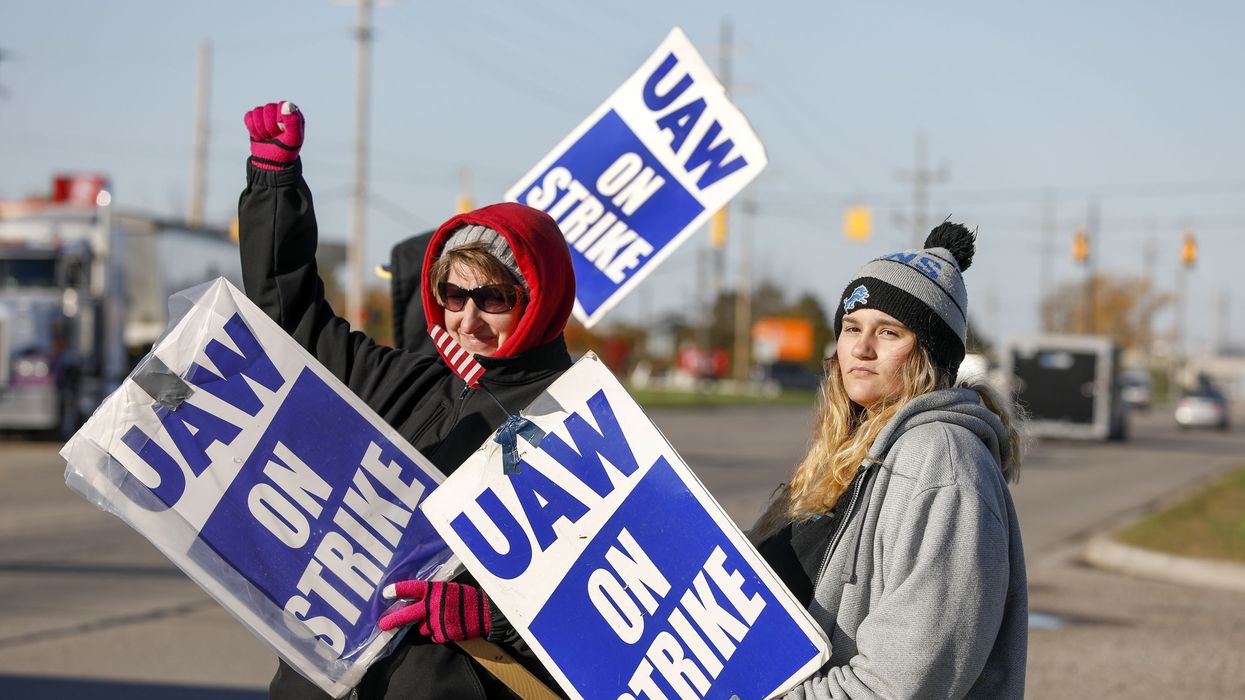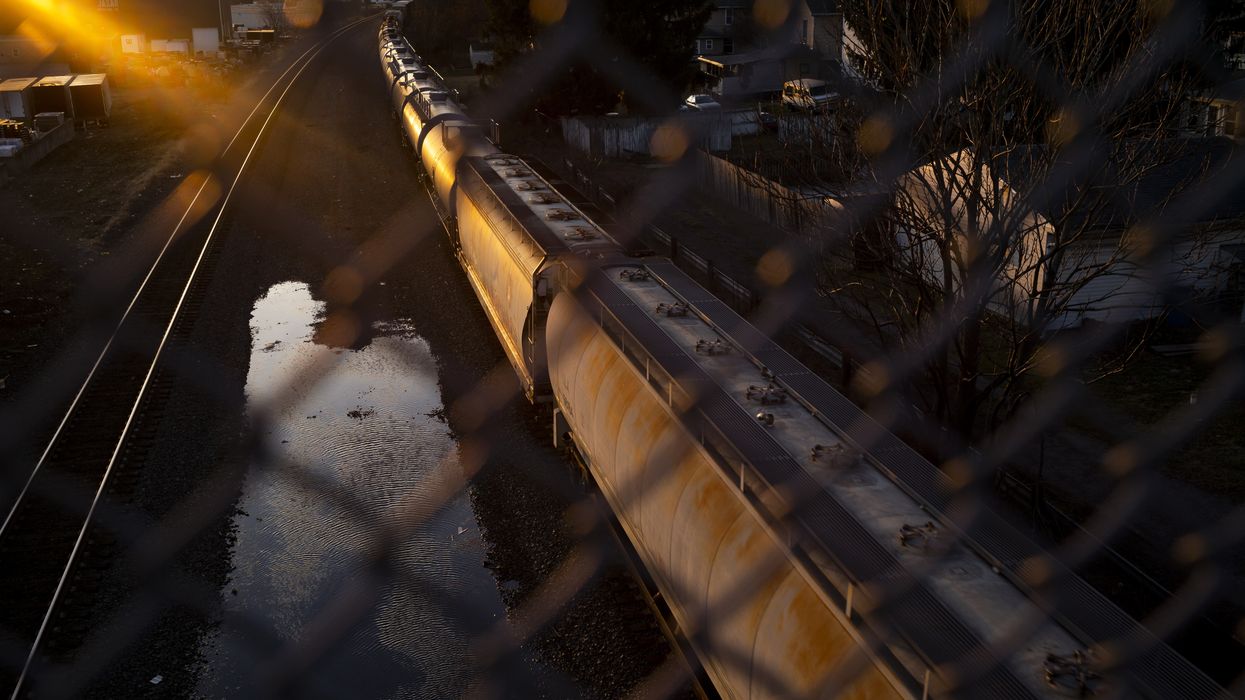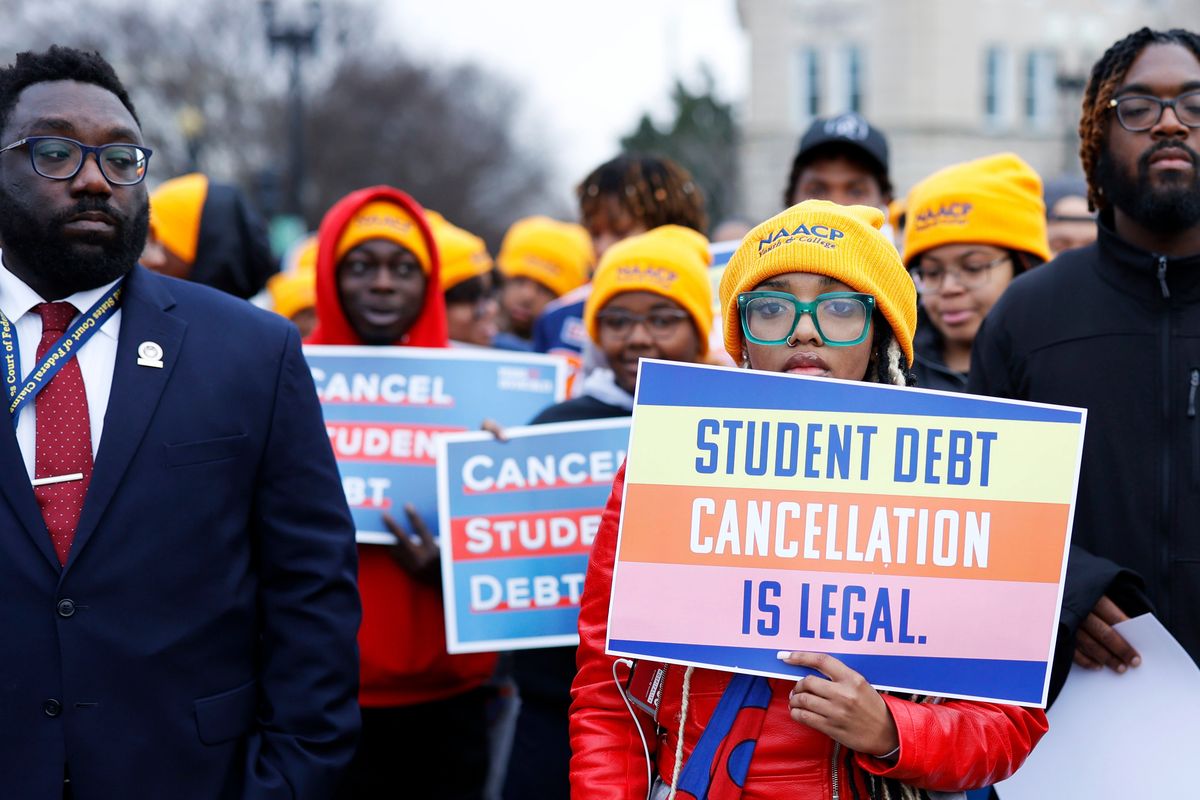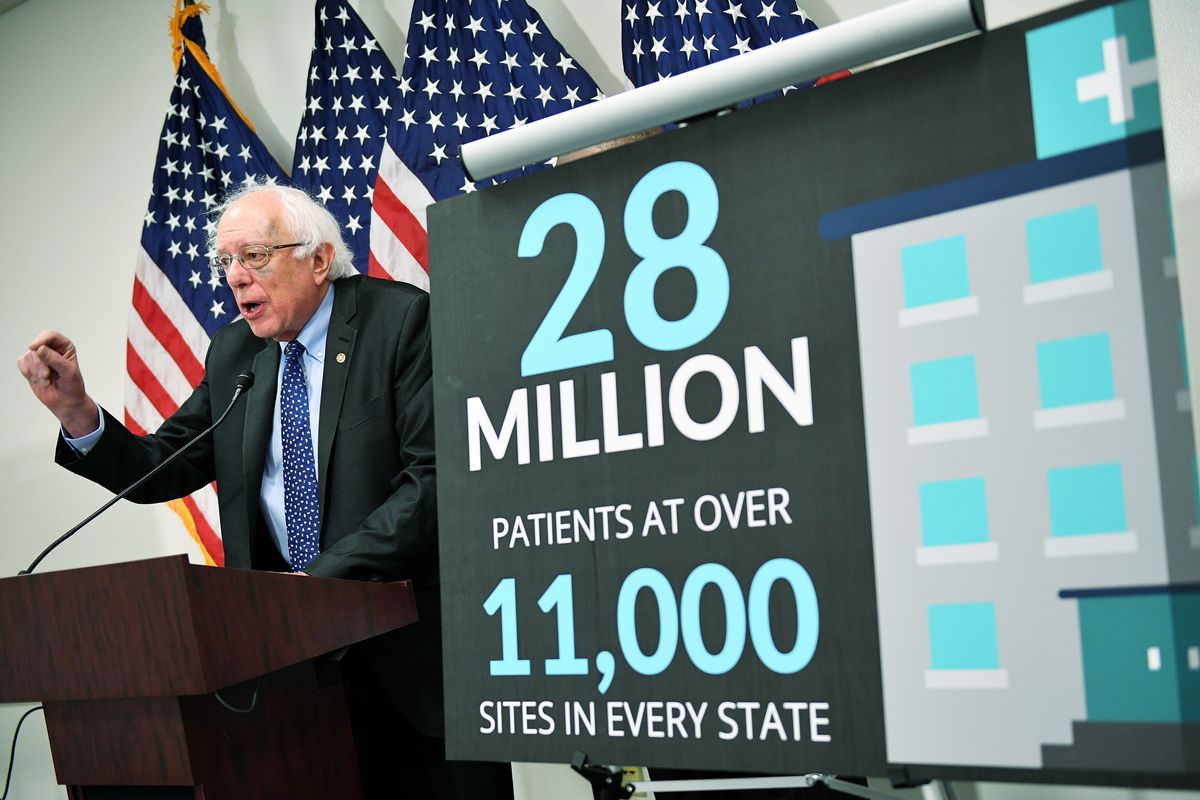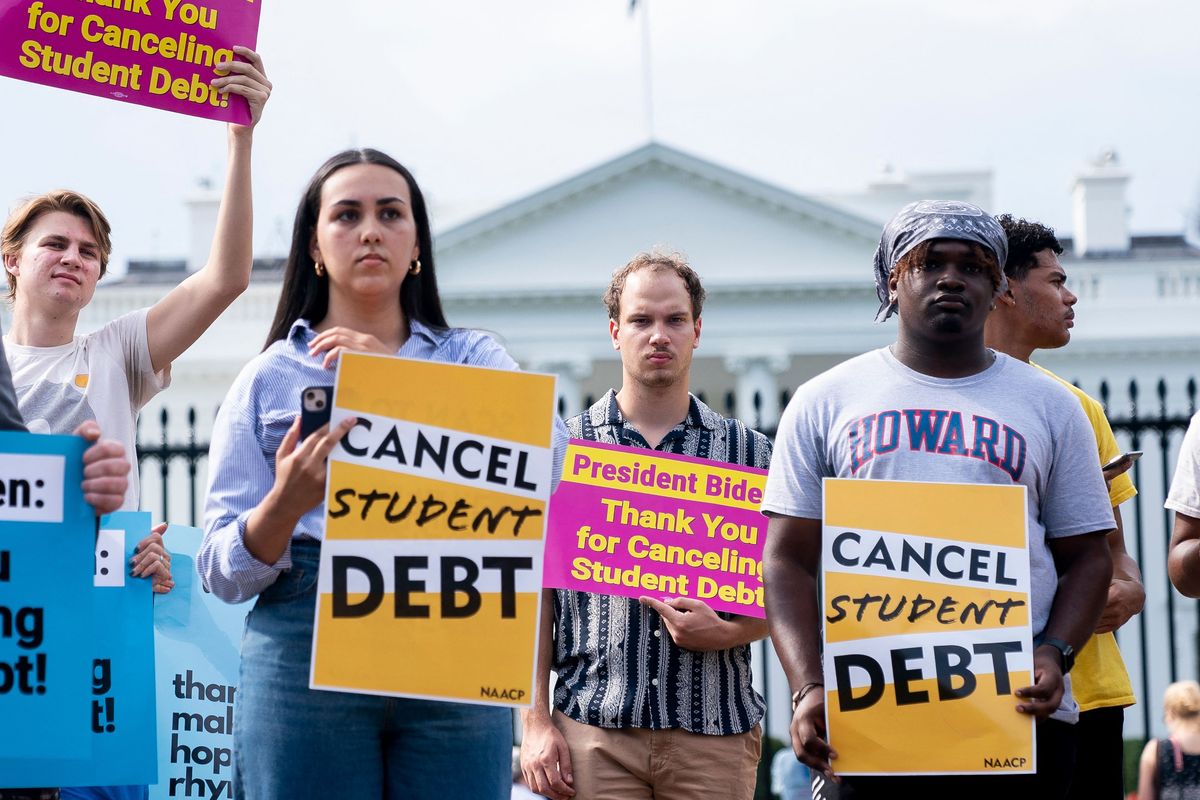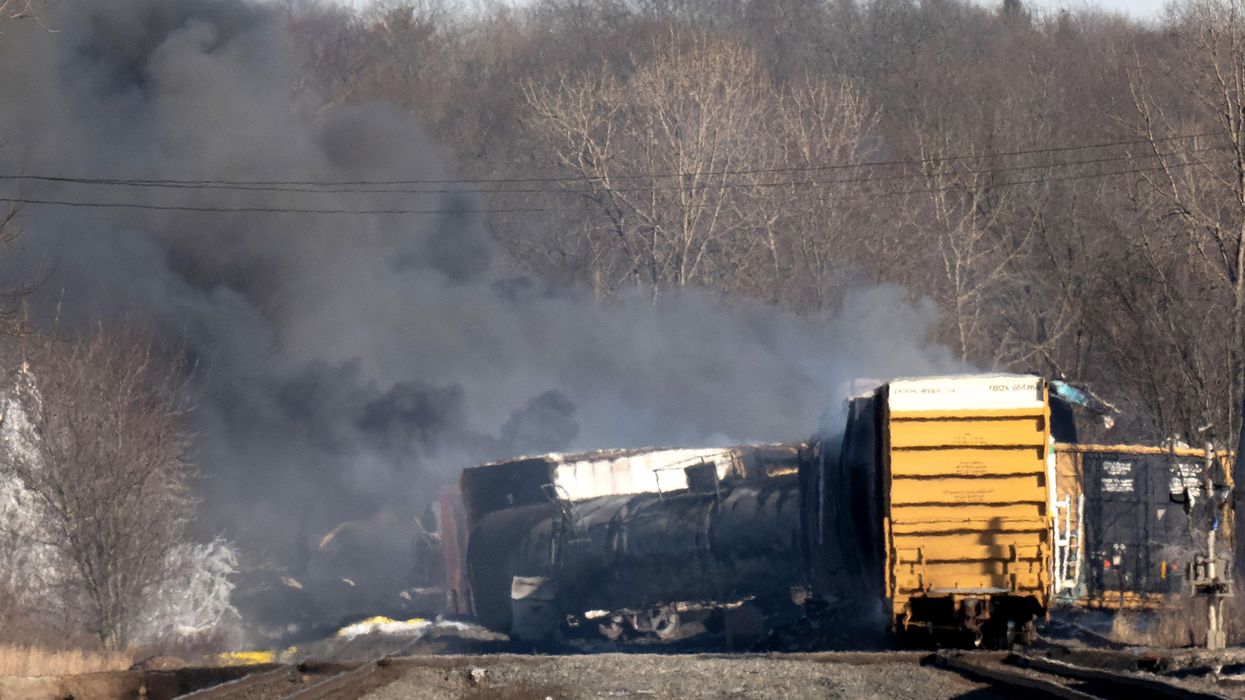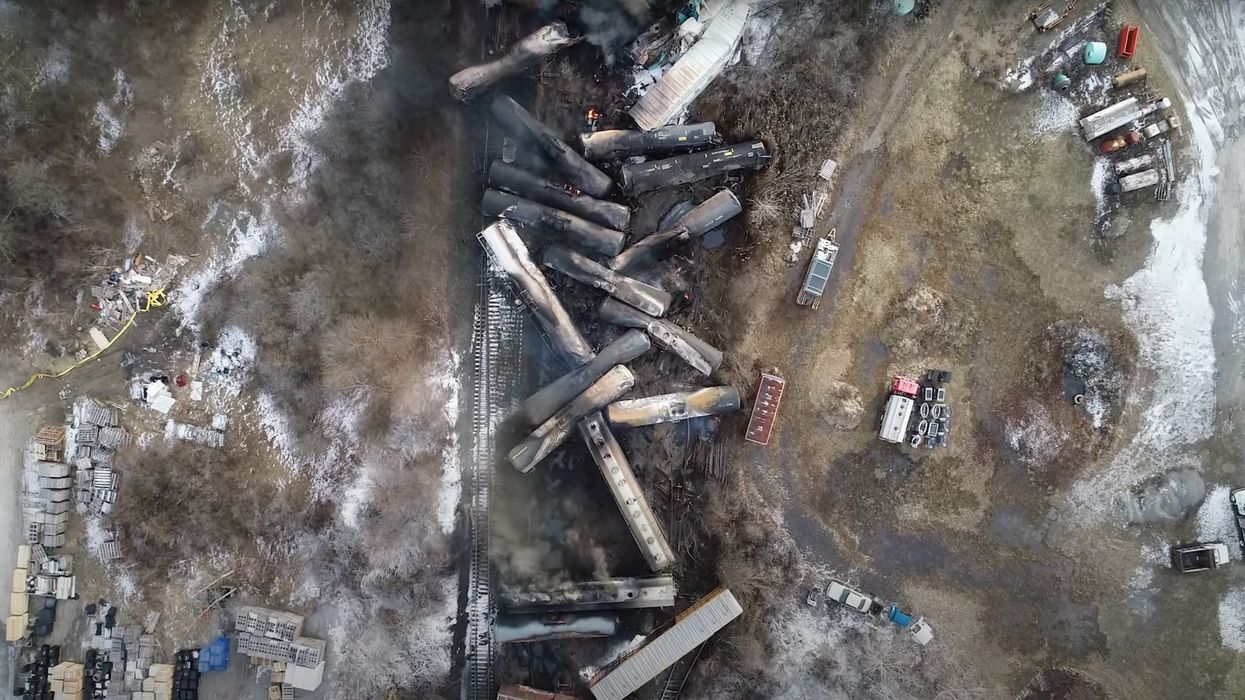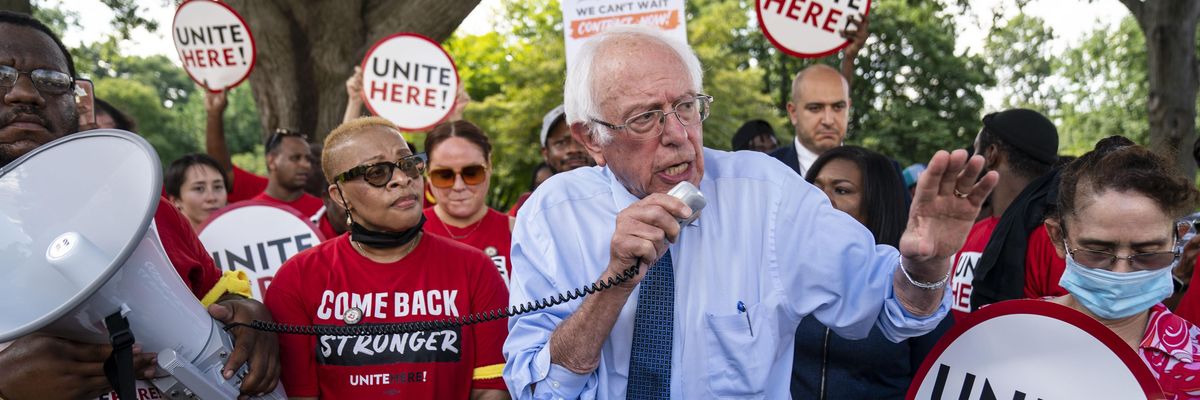
Surrounded by students, teachers, and advocates, Democratic Minnesota Gov. Tim Walz on Friday afternoon signed into law a bill to provide breakfast and lunch at no cost to all of the state’s roughly 820,000 K-12 pupils regardless of their household income.
The move to make Minnesota the fourth U.S. state to guarantee universal free school meals—joining California, Maine, and Colorado—elicited praise from progressives.
“Beautiful,” tweeted Stephanie Kelton, a professor of economics and public policy at Stony Brook University.
“No child should go hungry for any reason, period.”
UC-Berkeley professor and former U.S. labor secretary Robert Reich wrote on social media: “Let this serve as a reminder that poverty is a policy choice. In the richest country in the world, it is absolutely inexcusable that millions of our children go to school hungry because they are living in poverty.”
An estimated 1 in 6 children in Minnesota don’t get enough to eat on a regular basis. But 1 in 4 food-insecure kids live in households that don’t qualify for the federal free and reduced meal program, leading to “mounting school lunch debts in the tens of thousands of dollars,” Minnesota Public Radio reported.
Tens of thousands of children are set to benefit from Minnesota’s new law, which could be operational as early as summer school in July. Some of them were there to thank Walz at the signing ceremony, where the sense of elation was palpable.
None— (@)
“As a former teacher, I know that providing free breakfast and lunch for our students is one of the best investments we can make to lower costs, support Minnesota’s working families, and care for our young learners and the future of our state,” Walz said. “This bill puts us one step closer to making Minnesota the best state for kids to grow up, and I am grateful to all of the legislators and advocates for making it happen.”
The Minnesota House—led by the Democratic-Farmer-Labor (DFL) Party, the state’s Democratic affiliate—first passed the bill in February in a 70-58 party-line vote. The state Senate—where the DFL holds just a single-seat advantage—approved it on Tuesday by a 38-26 margin. The state House rubber-stamped an amended version of the bill on Thursday.
In a now-viral clip from the state Senate’s debate over the bill earlier this week. Sen. Steve Drazkowski (R-20) questioned whether hunger is really a problem in Minnesota—even as the state’s food banks reported a record surge in visits last year, months before federal lawmakers slashed pandemic-era Supplemental Nutrition Assistance Program (SNAP) benefits.
“I have yet to meet a person in Minnesota that is hungry,” Drazkowski said before voting against the bill. “I have yet to meet a person in Minnesota that says they don’t have access to enough food to eat.”
During Friday’s signing ceremony, Lt. Gov. Peggy Flanagan (DFL) said, “To our decision-makers who believe they have never met someone who is experiencing or has experienced hunger: Hi, my name is Peggy Flanagan, and I was 1 in 6 of those Minnesota children who experienced hunger.”
“By providing free breakfast and lunch to all of our students, we are removing barriers and removing stigma from the lunch room,” said Flanagan. “We are helping family pocketbooks, especially for those 1 in 4 who don’t qualify for financial assistance with school meals. We are leading with our values that no child should go hungry for any reason, period.”
“This is an investment in the well-being of our children, as well as an investment in their academic success,” Flanagan added, calling the “generation-changing” bill “the most important thing” she’s ever worked on in her life.
“By providing free breakfast and lunch to all of our students, we are removing barriers and removing stigma from the lunch room… This is an investment in the well-being of our children, as well as an investment in their academic success.”
As Minnesota Reformer reported: “The majority of Minnesota schools receive federal funding from the National School Lunch Program, which reimburses schools for each meal served, though it doesn’t cover the cost of the entire meal. Under the new law, schools are prohibited from charging students for the remaining cost, and the state will foot the rest of the bill—about $200 million annually.”
MPR noted that “the legislation is similar to a program that was introduced during the pandemic to provide meals for all students, but was discontinued at the end of last year.”
Last month, The Star Tribune editorial board opined that providing free breakfast and lunch to all of Minnesota’s students, including affluent ones, is “excessive.”
Pushing back against this argument for means-testing, Darcy Stueber—director of Nutrition Services for Mankato Area Public Schools and public policy chair of the Minnesota School Nutrition Association—asserted that meals should be guaranteed to all kids at no cost, just like other basic learning necessities.
“We don’t charge for Chromebooks and desks and things like that,” she told MPR. “It’s a part of their day and they’re there for so many hours. It just completes that whole learning experience for the child.”
Minnesota Rep. Sydney Jordan (DFL-60A), the bill’s lead author, made the same point to counter GOP lawmakers’ complaints following the initial passage of the legislation.
“We give every kid in our school a desk,” Jordan said last month. “There are lots of kids out there that can afford to buy a desk, but they get a desk because they go to school.”
Walz, for his part, stressed Friday that his administration is “just getting started” when it comes to boosting education funding.
“The big stuff,” said the governor, “is still coming.”
This post was originally published on Common Dreams.

